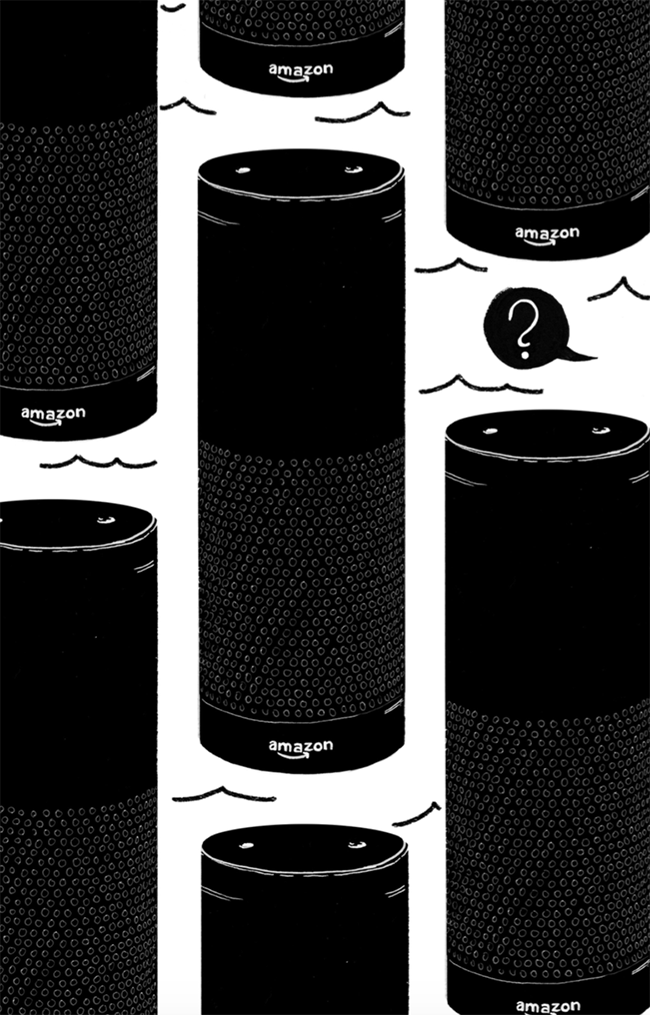ZEITGUIDE TO THE ALWAYS ON ASSISTANT

Voice assistants are transforming our relationship to digital technology, allowing us to call on whatever we need with a simple spoken command.
Apple’s rollout of Siri in 2011 was meant to be the first true introduction of this capability to consumers. But this early effort did not prove reliable enough to compel a shift in how users searched for information.
Instead, it would be the release of Amazon’s Echo, powered by Alexa, in 2015 that made hands-free access to information more feasible. This was then followed by the Google Home. That the first widespread use of voice assistants would happen not with our phones, but with stationary home devices, came as some surprise. Indeed, Apple was at first resistant to respond with its own home device.
All that changed in January with the introduction of the Apple HomePod, which was met with poor initial reviews. While HomePod boasts better sound quality and what Apple claims is stronger security, Siri hasn’t proven to be as effective at understanding users as Amazon’s Alexa or Google’s Assistant.
There’s also a skills gap among these assistants. Third-party developers have created some 25,000 “skills” for Amazon’s Alexa. Google claims its Assistant can perform more than a million “actions.”SiriKit, a tool released in 2016 to allow outside developers to create skills for Siri, so far includes just 10 “activities.” Though Siri does support 21 languages, compared to just 3 for Alexa, Google says its Assistant will soon support 30, including Hindi (another sign of India’s importance to the growth of these tech giants).
That Alexa was the first voice assistant consumers truly glommed on to has proven to be a massive advantage for Amazon. Before HomePod’s launch, Amazon’s share of the home assistant market was just under 70%. Google’s was around 25%. Those figures have dipped a bit since HomePod’s arrival, with Apple’s share hovering at around 3% of the market.
Amazon’s early lead in the home has several critical implications. These assistants can be the gateway to online shopping, and companies grown accustomed to navigating the SEO landscape, must figure out how customers will get from “OK Google” or “Hey, Alexa” to the products and services they’re selling.
Voice assistants are also syncing up with other devices in the home: from lights, to TVs, to refrigerators—and even the front door—generating access to data on everything consumers watch and eat, what times they’re coming and going, and when and for how long they’re sleeping.
This tracking ability will also extend to driving. Recently, Kia announced that some of its 2018 models will feature the help of Google Assistant, joining Hyundai. New Toyota and Lexus models will feature Amazon’s Alexa, following similar announcements last year from BMW, Ford and Nissan.
Voice assistants will increasingly be with us in the workplace. Amazon’s Alexa now integrates with business apps like Salesforce, Concur and ServiceNow. WeWork uses Alexa to manage conference room bookings. Wynn hotels and Capital One have also made deals to use Alexa. (That Alexa now has enterprise capabilities marks a foray into Microsoft’s territory. Microsoft’s voice assistant, Cortana, has been mostly confined to PCs, limiting its usefulness.)
Cornering the market on which voice we interact with at home, in the car and at work would mean effective control over the entire online experience for Amazon, Google, Apple or Microsoft. For consumers, it will mean a more seamless digital experience, but likely one with fewer choices too. They’ll be trading the pages of search results delivered with a text search on Google or Amazon with one or two options, narrowed down for them using all that information their voice assistant has collected on their habits and preferences.
So far, sales for home devices suggest that’s a tradeoff many consumers are comfortable with.
Want to learn more about ongoing business and cultural transformation?
#GetSmartQuick with ZEITGUIDE 2018.
Inquire about our custom offerings.
Sign up to receive our weekly newsletter.
